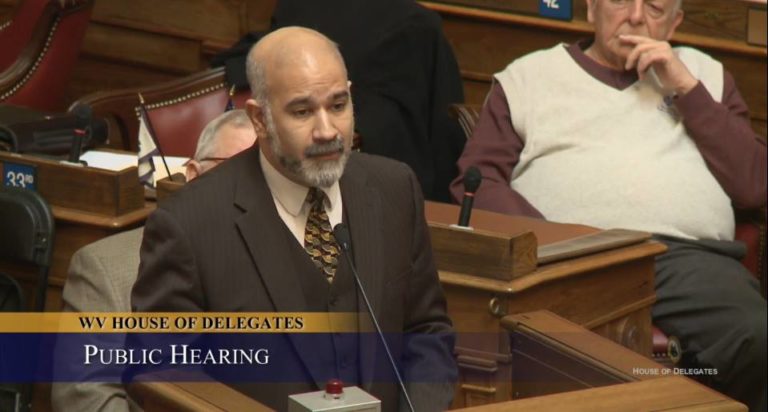Is This Any Way to Run a City’s Schools?
Leaked CTU Proposals Won’t Do Anything to Improve Schools’ Poor Performance

On April 21, the West Virginia Supreme Court unanimously upheld the state Right to Work law adopted by lawmakers in early 2016.
The five justices who participated in the case thus reaffirmed that no worker in the Mountain State may be forced to join or pay dues or fees to a union as a condition of employment.
The state AFL-CIO hierarchy has always known full well that West Virginians generally, and their own rank and file in particular, strongly support Right to Work.
In fact, then-West Virginia AFL-CIO President Kenny Perdue admitted in 2016 to Washington Post reporter Lydia DePillis that “union members were our . . . worst enemy” during Big Labor’s unsuccessful efforts to stall the growth of opposition to compulsory unionism in the Legislature during the 2015 elections
Definitive Ruling May Put an End to Big Labor Legal Crusade
Well aware that their lack of public support would make it difficult for them to reinstate forced union financial support legislatively, Organized Labor strategists tried for four years to get the West Virginia Right to Work law overturned in state court.
But union bigwigs’ efforts to sway the state judiciary to override the verdict of the voters and their own members on the Right to Work issue may finally have been put to a halt by the West Virginia Supreme Court’s definitive ruling in Morrisey v. West Virginia AFL-CIO.
National Right to Work Committee Vice President Greg Mourad, who had testified in support of West Virginia’s Right to Work law when it was being considered in the state House of Delegates, commended Justice Evan Jenkins’ dispassionately reasoned Supreme Court majority opinion.
Four of the Five Justices Who Heard Case Agreed Janus Required Them to Uphold Law
“The court unsparingly rejected outrageous arguments from union lawyers that union officials have a ‘right’ to extort money from workers who are forced to accept their ‘representation’ at the bargaining table, regardless of whether or not the employees personally benefit from it,” said Mr. Mourad.
“The court drew from a wide base of well-reasoned precedent for its conclusion that statutory Right to Work protections for employees are consistent with the West Virginia Constitution.”
A key precedent figuring in the decision was Janus v. AFSCME, a U.S. Supreme Court case argued and won by National Right to Work Legal Defense Foundation Staff Attorney Bill Messenger in 2018.”
Mr. Mourad explained:
“In Janus, the U.S. Supreme Court agreed with Mr. Messenger and his client, Illinois civil servant Mark Janus, that deals between Big Labor officials and employers making payment of forced dues or fees to a union a condition of public employment violate the First Amendment right to free speech.
“In defending West Virginia’s Right to Work law, state Attorney General Patrick Morrisey and Foundation Staff Attorney Matthew Gilliam, who submitted amicus briefs in the case on behalf of two independent-minded employees, separately asked the obvious question:
“Can it really be true that the U.S. Constitution prohibits compulsory union dues and fees as a job condition in the government sector, while the West Virginia Constitution mandates compulsory union fees in the private sector?
“Four of the five justices in Morrisey agreed with the attorney general and Mr. Gilliam that Janus required them to uphold West Virginia’s Right to Work law.”
Job Creators’ Confidence Right to Work Law Is Safe Will Boost State Economy
While citizens’ primary motive in enacting Right to Work laws, including West Virginia’s, is to protect employees’ freedom, the reality is that such laws have a long and impressive track record of boosting job creation.
“Before coronavirus lockdowns derailed the U.S. economy, West Virginia employees were already benefiting from enhanced opportunities thanks to their Right to Work law,” noted Mr. Mourad.
“In 2019, for example, U.S. Labor Department data show the total number of employed people in West Virginia grew by 1.8%.
“That’s well above the national average and nearly double the average for the 23 remaining forced-dues states.
“Once the lockdowns are all over, the benefits to employees will surely rise thanks to job creators’ confidence, post- Morrisey, that West Virginia’s Right to Work law is safe for the time being from Big Labor legal attacks.”

Leaked CTU Proposals Won’t Do Anything to Improve Schools’ Poor Performance

Wherever Big Labor wields the power to collect forced union dues, union bosses funnel a large share of the confiscated money into efforts to elect and reelect business-bashing politicians. Employment growth tends to lag as a consequence.

Members Insist They Keep Pro-Right to Work Campaign Promises